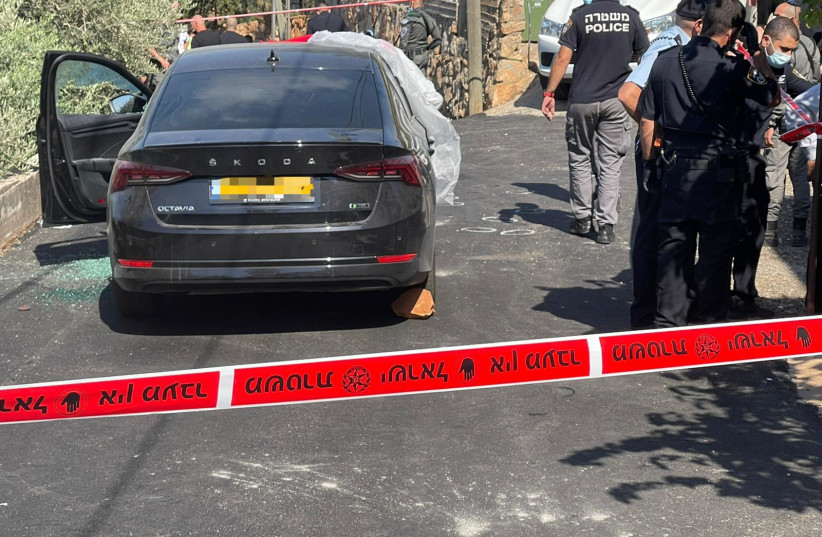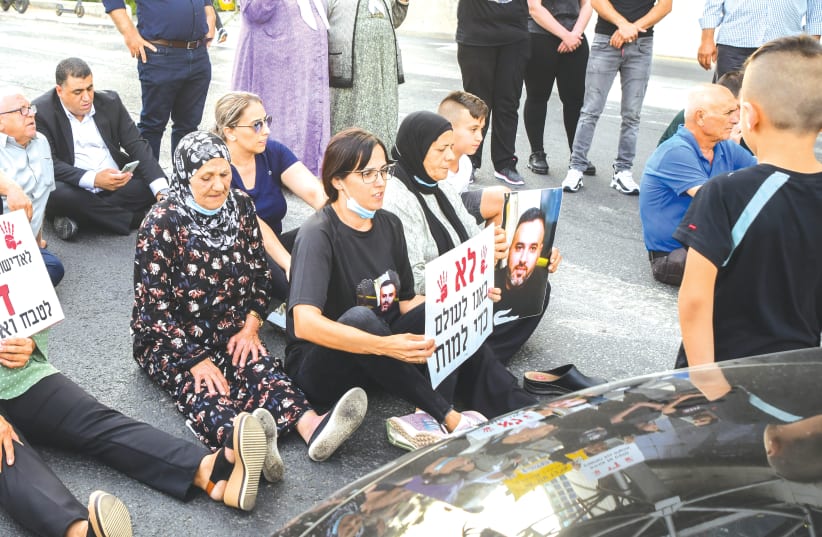Having just boasted that he killed 16 people, mobster Bugsy Siegel tried to soothe businessman Del Webb: “We only kill each other,” he said.
Siegel hired Webb to build Flamingo, Las Vegas’s fabled casino and hotel, a deal which, like the quip it produced, encapsulated Americans’ willingness to accept organized crime’s existence as long as it didn’t cross certain boundaries.
It’s a corrupt arrangement, to be sure, considering that gangsters, even when they “only kill each other,” still kill, besides also extorting, stealing, robbing and drugging thousands. Even so, the American underworld tries to keep its wars away from the public, so much so that areas where it operates are believed to be safe for passersby. The rationale is simple: street crime in middle class neighborhoods is bad for business, because government will have to fight it.
In a nutshell, this is the test Israel’s government now faces.
WHAT BEGAN with protection rackets that targeted construction sites in the Negev, and with theft rings that stole farmers’ crops and equipment, was followed by gang executions in bustling streets, like July’s murder of Izzat Hamed by two motorcyclists who gunned him down on Tel Aviv’s Greenbaum Street shortly after dusk.


Israel’s current crime crisis, all agree, is concentrated in its Arab sector, where 114 Arabs were murdered by fellow Arabs this year alone. This week, for instance, two men were shot during a funeral in Jaljulya. The gunman’s target was seriously injured, while his other victim, who was not his target, was killed.
For years, many Jews deluded themselves that Arab violence was an Arab affair. In fact, violence like cancer spreads, and proof of that arrived this week, when two Bedouin clans’ feud reached Beersheba’s Soroka Medical Center, where a brawl involving scores of people evolved from fistfights to stone throwing to gunshots.
The following day another brawl erupted in Middle Israel, this time at the entrance to Kfar Saba’s Meir Medical Center, when relatives of the man who was mistakenly shot in that Jaljulya funeral attacked the hospital’s security men.
Yes, Israeli-Arab crime is varied; some of it is urban, some is rural, and much of it happens among the Bedouin; some of it is organized and some is not; some is about family feuds and blood revenge, and some is about so-called honor killings. Even so, the bottom line is that 60% of Israeli crime happens in the Arab sector, even though it comprises only 20% of the population. In Nazareth alone there are 39 family feuds, a local police officer told Yediot Aharonot.
Responding to the Beersheba brawl, Mayor Ruvik Danilovich said the government has lost control over the situation. “Redlines have been crossed repeatedly,” he said, “and it’s time all this was brought to an end.” Calling what his city had just endured “civilian terror,” he urged the government to “fight to the bitter end” what has become “an existential war.”
He is right. We face a war, and here is what winning it will require, besides time and resolve.
TO WIN this war, police must transform on three fronts: intelligence, manpower and organization.
People ask whether to deploy the Shin Bet (Israel Security Agency), whose assignment, some claim, is to fight Israel’s enemies rather than spy on its own citizens. Well that argument, voiced by some Arab lawmakers, is unfounded.
The Shin Bet, like all internal security services, routinely spies on its own citizens. That is what its Jewish Department does, and that is what the FBI does by spearheading America’s war on organized crime. Yes, the Shin Bet is different because its agenda is dominated by the Palestinian arena, but conceptually there would be nothing wrong about involving it in the war on crime.
The Shin Bet has plenty to contribute to this struggle, which demands the kind of intelligence work in which it excels. We would be idiots to squander its agents and technology. For organizational reasons, it might be wiser to have them fight crime under police command, but deploying them is legitimate and urgent. The war’s intelligence effort will thus be redoubled and reinvented.
On manpower, the plan is to recruit 1,100 new cops. That’s a step in the right direction, as is the new budget’s addition of NIS 1 billion to Israel Police. However, 1,100 cops aren’t enough.
Like New York in the 1990s, this war demands massive police presence in multiple locations, and also large units ready for rapid deployment across long distances in response to sudden unrest, like the brawl in Beersheba.
This means creating new specialized units. One would be an agricultural police that will ambush the thieves who routinely steal livestock, crops, tractors and whatnot from farms across the country. This unit will also raid the illegal drug farms and smuggling gangs that have spread across the Negev.
A separate unit will be deployed against protection rackets, intercepting extortionists, protecting store owners and guarding construction sites. Another unit will target the Arab sector’s crime bosses, first mapping their operations, and then leading them to long jail terms, as has been done in recent years with Jewish crime bosses Zeev Rosenstein, Asi Abutbul and Yitzhak Abergil.
At the same time, new legislation will extend potential jail terms for involvement in agricultural theft, arms theft, illegal arms dealing, protection rackets, burglaries and street crime.
Last week police seized 65 illegal arms dealers and 59 weapons, including two machine guns. It was an impressive bust, but hardly a fraction of what remains to be done. This is war; a war which must be waged, a war which must be won, and a war which has hardly begun.
In memory of Stuart Schoffman – a scholar, journalist, humanist, Zionist, and dear friend.
The writer’s bestselling Mitzad Ha’ivelet Ha’yehudi (The Jewish March of Folly, Yediot Sefarim, 2019), is a revisionist history of the Jewish people’s leadership from antiquity to modernity.
